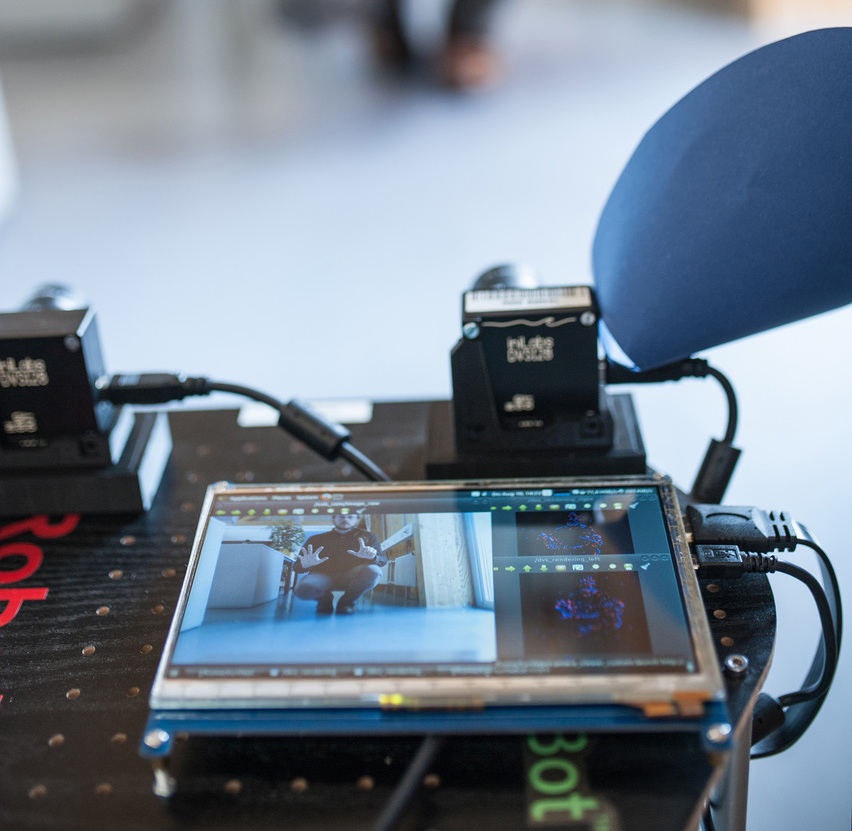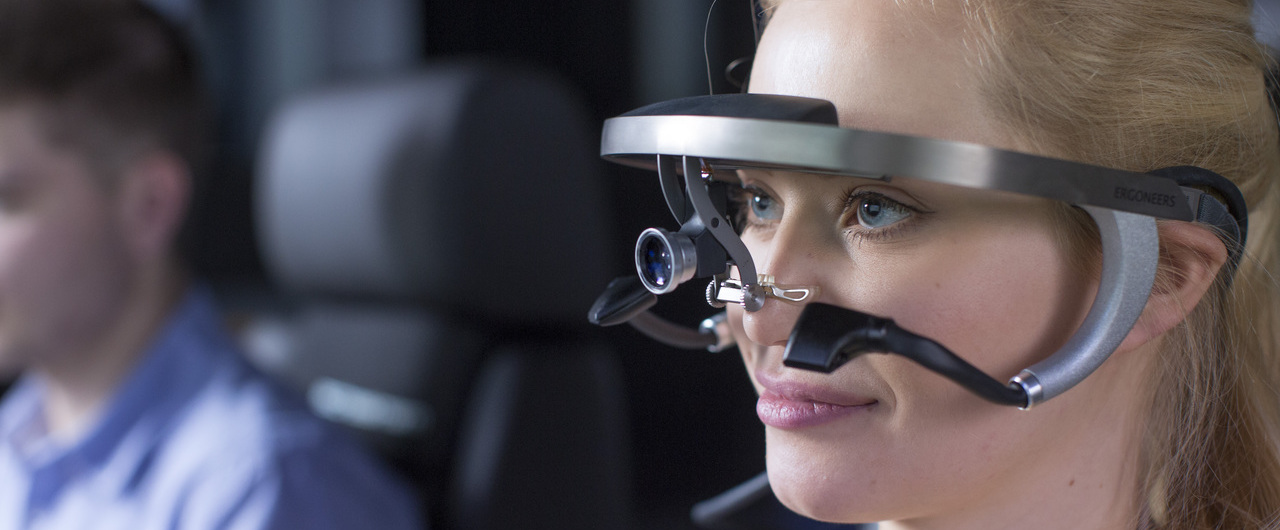Ulm University is perfectly equipped for its research on cognitive systems and human - technology interaction. Engineers, computer scientists and psychologists are working closely together under the roof of one faculty and are also involved in the research focus area Highly Automated Driving (LINK zum Schwerpunkt), among others.
The BioMotionLab is using motion capture and eye tracking methods to analyse the cognitive abilities of humans. How does our brain recognise a motion or an action, for instance? Computer scientists use these findings to develop algorithms for cognitive systems which emulate these processes of human perception. The effectiveness and practicability of these algorithms is then tested on small robot models. The project <link en in institute-of-neural-information-processing va-morph-2 _blank external-link-new-window internen link im aktuellen>'Neuronal mechanisms of the audio-visual integration for the controlling of robots in a neuromorphic architecture' (VA-MORPH) has neuroinformatics and cognition researchers exploring ways to improve the robustness, speed and efficiency of how cognitive systems process visual and auditory sensor data.
Mobile devices with interactive interfaces and data glasses are becoming an increasingly important research field as these technologies gain popularity. At the same time, they present challenges which complicate their application. In this context, the project Development of interaction techniques, concepts and tools for mobile interactions with ubiquitous user interfaces, which receives funding from the German Research Foundation (DFG), is studying how to optimise the user experience of these devices in terms of effectiveness, efficiency and satisfaction.
The research focus area Human - Technology Interaction also brings forth various and significant improvements in medicine. The project SenseEmotion , which is funded by the Federal Ministry of Education and Research (BMBF), is a collaboration between Ulm's Institutes of Media Informatics and Neuroinformatics together with the University of Augsburg and the University Medical Centre Ulm. The project's central focus is the optimisation of pain treatment in order to improve the well-being and life quality of senior citizens. The scientists are working hard to develop interactive applications that recognise physical pain automatically and provide suitable support and relief.


